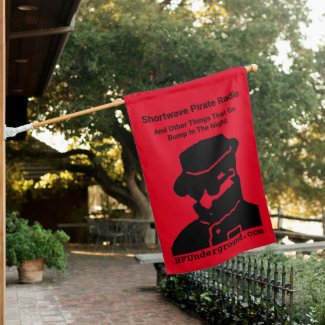# The New York Times
January 26, 2011
Charlie Louvin, Country Singer, Dies at 83
By BILL FRISKICS-WARREN
Charlie Louvin, a member of one of the pre-eminent brother acts in country music and an inspiration to several generations of rock musicians, died on Wednesday at his home in Wartrace, Tenn. He was 83.
The cause was complications of pancreatic cancer, said Michael Manning, a friend of Mr. Louvin’s and the producer of his single “Back When We Were Young,” his final recording, released last year.
Mr. Louvin achieved his greatest fame with the Louvin Brothers, the popular duo that modernized the close-harmony singing of Depression-era acts like the Blue Sky Boys and the Delmore Brothers and that anticipated the keening vocal interplay of the Everly Brothers.
Typically featuring Mr. Louvin on guitar and lead vocals and Ira, his older brother, on mandolin and high tenor harmonies, the Louvins’ 1950s hits also left their mark on the country-rock of the Byrds and others.
“I just could not get enough of that sound,” the singer Emmylou Harris said of the Louvin Brothers’ music in an interview with The Observer, the British newsweekly, in January 2010. “I’d always loved the Everly Brothers, but there was something scary and washed in the blood about the sound of the Louvin Brothers.”
Ms. Harris’s breakthrough country hit was a 1975 remake of the duo’s “If I Could Only Win Your Love.” Resolutely traditional in approach, Mr. Louvin and his brother, who died in an automobile accident in 1965, were proponents of the high, lonesome sound of the southern Appalachian Mountains, where they grew up. Some of their best-known recordings were updates of foreboding antediluvian ballads like “In the Pines” and “Knoxville Girl.” Other material centered on the wholesome likes of family and religion, including “The Christian Life,” an original that later appeared on “Sweetheart of the Rodeo,” the landmark Byrds album featuring the singer Gram Parsons.
Also falling under the duo’s sway were alternative-rock acts like Elvis Costello and the band Uncle Tupelo (which recorded a version of the Louvin Brothers’ cold-war plaint “Great Atomic Power” in 1992).
Despite their conservative cultural and musical leanings — their initial ’50s hits were recorded without drums, which were then commonplace in country music — the Louvins’ greatest acclaim came with the advent of rock ’n’ roll, when rebellious sentiments and loud backbeats were in ascendance. Their biggest single, “I Don’t Believe You’ve Met My Baby,” was a No. 1 country hit for two weeks in 1956. They also reached the country Top 10 with songs like “When I Stop Dreaming” and “Cash on the Barrelhead” during this period and were headliners in a touring revue that included Elvis Presley.
The Louvins’ popularity waned as the ’60s unfolded, and in 1963 declining record sales and Ira’s drinking led the brothers to dissolve their partnership and pursue solo careers. Charlie Louvin placed 16 singles in the country Top 40 over the next decade, including “I Don’t Love You Anymore,” a Top 10 hit in 1964. He went on to make a pair of albums with the singer Melba Montgomery in the ’70s and a record with the bluegrass duo Jim and Jesse in 1982.
Mr. Louvin was by then known primarily as a star of the Grand Ole Opry, a reputation that persisted into this century, when another wave of rock bands, including the Raconteurs and Cake, embraced his music. In 2007 he released the first of several albums for the New York label Tompkins Square and appeared at the Bonnaroo music festival in Manchester, Tenn. “Livin’, Lovin’, Losin’: Songs of the Louvin Brothers,” a tribute record for which Mr. Louvin’s niece Kathy Louvin served as an executive producer, won the Grammy Award for best country album in 2004.
Charlie Elzer Loudermilk was born on July 7, 1927, in Section, Ala. One of seven children, he grew up working on the family farm in nearby Henagar, a small community in the northeastern part of the state. John D. Loudermilk, the writer of hits like “Abilene” and “Tobacco Road,” was his first cousin.
Reared on the harmonies they learned in church, Charlie and Ira Loudermilk first sang together professionally as the Radio Twins in 1942. They changed their name in 1947 to the Louvin Brothers, believing that Louvin was easier than Loudermilk to say and spell. They also began making records that year, releasing singles on several labels before finding success with Capitol in 1952, after Charlie Louvin’s return from the Korean War. More than just singles artists, the Louvins also recorded a series of gospel-themed concept albums, including “Satan Is Real,” its outré cover photo depicting the two men before an outsize effigy of the Devil.
The Louvin Brothers were inducted into the Country Music Hall of Fame in 2001.
Mr. Louvin is survived by his wife of 61 years, Betty Harrison Louvin; three sons, Charlie Jr., Glenn and Kenneth; three sisters, Geraldine McDonald, Ailene Parker and Flora Lauderdale; and five grandchildren.
Mr. Louvin’s solo career spanned five decades, but, as he told Terry Gross, the host of National Public Radio’s “Fresh Air” program, in 1996, he never got used to singing without his brother.
“When it comes time for the harmonies to come in, I will move to my left because my brother and I always used to use one microphone,” he said of performing solo. “Even today, I will move over to the left to give the harmony room, knowing in my mind that there’s no harmony standing on my right.”



